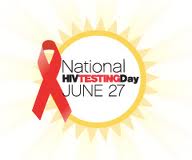ESRD rate almost fourfold higher in HIV population
(Healio)
The rate of end-stage renal disease was nearly four times greater in HIV-infected adults relative to the general population in the United States, according to new data presented at the 2013 International AIDS Society Conference on HIV Pathogenesis, Treatment and Prevention in Kuala Lumpur, Malaysia.
Researchers said the data indicate “the need for greater surveillance, prevention, and treatment of comorbidities among HIV-infected adults.”
Keri N. Althoff, PhD, MPH, assistant professor in the department of epidemiology at Johns Hopkins Bloomberg School of Public Health, and colleagues identified participants from the North American AIDS Cohort Collaboration on Research and Design (NA-ACCORD) with at least two estimated glomerular filtration rates less than 30 mL/min/1.73 m3 measured more than 90 days apart or a diagnosis of renal disease from 2000 to 2009. The researchers validated end-stage renal disease (ESRD), defined as dialysis or renal transplant, through medical record review and used Poisson regression analyses to determine crude incidence rates (IR) and incident rate ratios (aIRRs) adjusted for age, sex, race, HIV transmission risk, antiretroviral treatment, clinical AIDS diagnosis, undetectable HIV viral load, and CD4 count. Age- and sex-standardized incidence ratios (SIRs) were estimated to compare the HIV-infected adults from the NA-ACCORD to the general population using ESRD rates from the US Renal Database System (USRDS).




